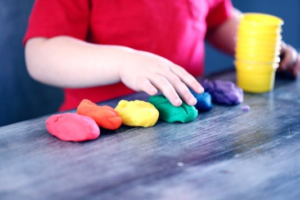
If you are a parent or educator, you have probably noticed how easily kids can get overwhelmed with standard classroom routines. While reading and writing are essential, many children also crave a way to express themselves and explore learning beyond textbooks.
Creative workshops can give the students a platform to explore hands-on experiences. They give students a chance to think differently and build confidence. Here are five reasons why every school should offer them.
1. Learning Through Play with Children’s School Workshops
When schools host children’s school workshops, students get to explore new ideas in a way that feels less like work and more like play. These workshops often involve music, storytelling, painting, or even building projects—activities that still teach important skills but in a more relaxed setting.
Kids learn best when they’re engaged. Workshops allow them to move, create, and communicate, all while absorbing new concepts. And because the pressure of grades or testing is taken away, they’re more likely to try new things without fear of getting something wrong. That’s how real learning often begins.
2. Building Confidence Early with Toddler Pre-K Programs
It’s not just older students who benefit from creativity. Even young children in Toddler Pre-K programs gain a lot from participating in creative workshops. At that stage, every new experience helps shape how a child sees themselves and their place in the world.
These early activities help children find their voices. They also prepare them for future learning improving focus, motor skills, and emotional expression. Plus, when toddlers see their work valued—like when a drawing is displayed in class—it shows them that what they create matters.
3. Encouraging Problem-Solving and Critical Thinking
Creative workshops help kids think on their feet. Whether it’s figuring out how to finish a group art project or improvising a scene during a drama activity, students are pushed to solve problems without having a clear right or wrong answer
Problem-solving in creative settings builds flexibility. It also gives children the space to come up with their own ideas rather than just repeat information. Over time, that helps them become more independent thinkers, something every teacher and parent wants to see.
4. Bringing Students Together Through Collaboration
Many workshops are group-based, which means kids have to work as a team. That’s a big deal, especially in schools where students don’t always get to collaborate outside of group assignments. In creative workshops, collaboration feels natural because it’s usually built into the activity itself.
Whether students are building a mural or performing a skit, they learn how to share space, listen to each other’s ideas, and build something together. This helps them build social skills while also learning how to handle disagreements or different opinions.
5. Supporting Emotional Health Through Expression
Sometimes, kids can’t explain what they are feeling, but they can show it through art, music, or movement. That’s why creative workshops are such a valuable outlet. When students are given space to create, they often work through their emotions without realizing it.
This kind of expression can be especially important for students who feel stressed, anxious, or left out. Creative activities provide a safe way to deal with those feelings and give teachers insight into what their students might be going through.